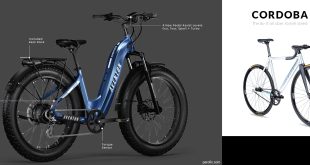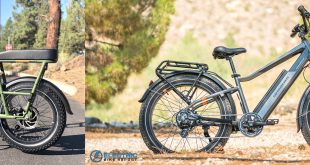What Sets Specialized Shops Apart?
Walking into a specialized bicycle shop is like stepping into a different world. There’s a certain vibe—a mix of passion, precision, and expertise—that sets these shops apart from generic bike stores or big-box retailers. But what exactly makes them special, and why should both beginners and seasoned riders care? Let’s dive deep.
1. Expertise Beyond the Surface
Unlike large chain stores, specialized shops are staffed by people who eat, sleep, and breathe bicycles. These aren’t just salespeople—they’re trained mechanics, cycling enthusiasts, and sometimes even competitive riders. Their knowledge goes beyond basic specs:
- Component-level expertise: Understanding the difference between Shimano Ultegra and Dura-Ace, Bosch vs. Brose e-bike motors, or carbon vs. aluminum frames is standard here.
- Fit and ergonomics: A proper bike fit is crucial for comfort, efficiency, and injury prevention. Specialized shops often provide advanced fitting services, including saddle height optimization, handlebar adjustment, and even pedal stroke analysis.
- Custom recommendations: Whether you need an electric commuter bike for urban hills or a gravel grinder for weekend adventures, these shops tailor their suggestions to your riding style, body type, and budget.
Personal experience: I remember walking into a local shop unsure about which e-bike suited my city commute. Instead of pushing the priciest option, the mechanic measured my leg length, observed my riding posture, and even took me on a short test ride. By the end, I had a bike perfectly suited for my routes—and it felt like it had been built just for me.
2. Hands-On Maintenance and Repairs
One of the biggest differentiators of specialized shops is their focus on maintenance and repair. Generic stores may handle basic fixes, but specialized shops tackle complex issues:
- Motor diagnostics: For e-bikes, the motor system isn’t just a wheel with a battery. Specialized shops can troubleshoot Bosch, Shimano STEPS, or Yamaha systems, update firmware, and calibrate sensors.
- Precision tuning: From derailleur adjustments to suspension setup, these shops ensure your bike rides as smoothly as possible. Even small tweaks, like brake pad alignment, can drastically improve safety and performance.
- Regular service plans: Many shops offer scheduled maintenance packages, helping your bike perform optimally and last longer. For e-bikes, this is critical: battery life and motor efficiency depend on proper care.
Highlighted Tip:
Always book a mid-season check-up for your e-bike. Even if it feels fine, electronics, chains, and brakes wear differently than on regular bikes.
3. Community and Experience
Specialized shops often double as community hubs. They host group rides, workshops, and demo days, creating a space where riders of all levels can learn and connect. This isn’t just marketing—it’s part of the culture of cycling.
- Try before you buy: Test rides allow you to experience torque sensors, pedal-assist modes, and geometry differences firsthand.
- Skill clinics: Many shops run workshops on bike handling, maintenance, and even winter riding techniques.
- Networking: Meeting other riders, especially in urban areas where cycling can feel isolating, adds motivation and practical knowledge.
4. Sustainable Transportation and Eco-Friendly Impact
Electric bikes aren’t just fun—they’re a key piece of the urban sustainability puzzle. Specialized shops champion this transition by:
- Promoting low-emission commuting alternatives.
- Encouraging responsible battery disposal and recycling.
- Educating customers on the environmental benefits of replacing short car trips with e-bike rides.
Example: I switched from a 7-mile car commute to an e-bike. The shop not only guided me to a lightweight, high-efficiency model but also gave tips on battery charging cycles and eco-friendly maintenance practices. Over a year, that commute cut my carbon footprint dramatically—and my mornings became much more enjoyable.
5. Future Trends and Innovations
Specialized shops are often the first to showcase the latest in cycling technology. Some emerging trends include:
- Smart integration: Bikes connected to apps for route planning, fitness tracking, and motor diagnostics.
- Battery advancements: Lighter, longer-lasting lithium-ion batteries with faster charging times.
- Urban mobility solutions: Compact folding e-bikes, cargo e-bikes for deliveries, and multi-modal commuting designs.
- Materials innovation: Lightweight carbon fiber frames, corrosion-resistant alloys, and recycled materials for more sustainable manufacturing.

6. Practical Buying Advice
Choosing a bike from a specialized shop involves more than picking the prettiest frame:
- Test multiple models: Pay attention to weight, motor responsiveness, and handling.
- Ask about hidden costs: Batteries, maintenance kits, and warranty services can add up.
- Consider long-term support: A shop with a strong maintenance program will keep your bike running smoothly for years.
Highlighted Tip:
If possible, schedule a demo ride on your daily commute route. What feels great in a parking lot may behave differently in real-world conditions.
Frequently Asked Questions
Q: Why should I buy from a specialized shop instead of an online retailer?
Specialized shops provide expert guidance, test rides, custom fitting, and post-purchase support—things online retailers can’t match. They also handle complex e-bike systems and maintenance, ensuring longevity and safety.
Q: Are specialized shops more expensive?
Prices may be slightly higher, but the value lies in expertise, service, and quality assurance. Think of it as investing in peace of mind and a bike that fits perfectly.
Q: Can beginners benefit from specialized shops?
Absolutely. Many first-time riders are overwhelmed by specs, models, and motor systems. Specialized staff demystify everything, from pedal-assist modes to battery care, making the transition smooth and enjoyable.
Q: How do specialized shops support sustainability?
They promote eco-friendly commuting, advise on battery recycling, and guide riders toward long-lasting, low-maintenance options. Many also host community events that raise awareness of sustainable transportation.
Q: What maintenance should I expect for an e-bike?
Regular checks include chain lubrication, brake adjustments, tire pressure monitoring, and battery health checks. Specialized shops can also update software, recalibrate sensors, and troubleshoot motor issues.
Conclusion
Specialized shops are more than retail spaces—they’re knowledge hubs, community centers, and sustainability advocates. From technical expertise and custom bike fitting to hands-on maintenance and future-focused trends, they offer an experience that online stores simply can’t replicate. Whether you’re a beginner nervous about your first e-bike or a seasoned rider chasing performance gains, these shops provide guidance, support, and inspiration. They’re helping us shift toward smarter, greener, and more enjoyable urban transportation, one ride at a time.
Final Tip: Treat your specialized shop as a partner, not just a seller. Attend their events, ask questions, and rely on their expertise—you’ll ride farther, safer, and with more joy.
 Electric Bike & Bicycle Repair Hub Master DIY electric and traditional bike repairs with practical tips and trusted product recommendations.
Electric Bike & Bicycle Repair Hub Master DIY electric and traditional bike repairs with practical tips and trusted product recommendations.



